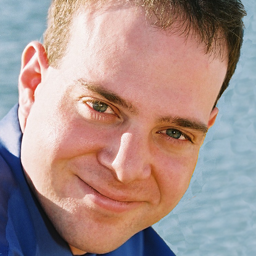OpenSim developers are discussing ways to combat damaging patent litigation, including changing the OpenSim license to deter potential patent trolls.
The Overte Foundation, which holds the OpenSim licenses, recently released a contributors’ license agreement for its developers. One possible anti-troll protection measure would be to change the agreement so that if someone sues an OpenSim developer for a patent violation, they will lose the right to use the OpenSim code.
OpenSim core developer Crista Lopes, inventor of the hypergrid and treasurer of the Overte Foundation, said that the foundation’s legal counsel will be looking over the suggestion.
“We all share the loathing for patent trolls,” she told Hypergrid Business, adding that the foundation has been studying what other open source projects are doing in this area.
In addition to discussing the issue with Foundation attorney Ben Esplin, she said that the issue will also be discussed with long standing corporate contributors to OpenSim “to see how their lawyers react to the suggestion.”

Some high-profile users of the OpenSim software support the measures.
“This change should help protect the community by ensuring that they retain the right to counter sue the people who make patent threats against the community,” proponent Ilan Tocher, CEO of Kitely Ltd. told Hypergrid Business. “It is a form of patent retaliation clause that many big open source projects include and that OpenSim currently lacks.”
Another supporter is InWorldz LLC partner David Daeschler, who is also known as Tranquillity Dexler.

“I think it’s the only way to prevent a real problem for everyone involved in this space in the future,” he said. “This has also been done by larger entities to protect patent claims on the Linux source code via the Open Invention Network. However in that case the members have extensive patent portfolios that they can use against violators.”
The new anti-patent measure does require a modification of the OpenSim source code license,but this is not a step “that at all affects usability in my opinion,” he said. “The only question it raises is how legal proceedings would be paid for in the event of a breach of the patent clause. Some of the real patent troll companies are very large and well funded.”
Patent trolls are companies that buy up patent portfolios just for the sake of suing everyone who might be infringing on those patents. Even if the patents themselves won’t hold up in court, many companies — especially smaller ones — pay up rather than engage in costly litigation.
“I think this proposed change by itself won’t help us ward off pure patent trolls but it should help the OpenSim community protect itself from people who wish to use OpenSim while suing the people who develop it,” said Tochner. ” This change means that if you sue an OpenSim developer you lose the right to use OpenSim code or the contributors’ related patents — which is only fair, in my opinion. Once OpenSim becomes more widely used, not being able to use it may become a penalty that deters people from making patent threats against us. Until then this change makes a statement that the OpenSim developer community is united against people who try to take claim of parts of our shared work. It’s an important first step towards a future more complete solution to the patent threats problem.”

How Apache and Mozilla and Linux fight the trolls
There are plenty of examples of such anti-patent protection measures in the open-source community.
For example, the Apache license includes the following clause — “Work” refers to the Apache code base — “Â If you institute patent litigation against any entity … Â alleging that the Work or a Contribution incorporated within the Work constitutes direct or contributory patent infringement, then any patent licenses granted to you under this License for that Work shall terminate as of the date such litigation is filed.”
Apache is the open-source server software that runs most of the Websites on the Web.
The Mozilla license is even more extensive in its anti-litigation provisions, protecting both code contributed by participants to the open source project, as well as any other software, hardware or device invented by participants.
It was the first of the “industrial-strength” open source licenses, said Lawrence Rosen in his book Open Source Licensing: Software Freedom and Intellectual Property Law. When it were first added the measure was controversial, he said, but has since been widely copied.
“It at least forces a potential patent litigant to think carefully before he or she sues a participant for infringement,” he wrote. “Patent litigation is no longer risk-free.”
Another approach is being taken by the Open Invention Network, which protects Linux against patent lawsuits. They will actually go out and buy related software licenses to keep them from falling into the hands of patent trolls.
After all, a patent troll isn’t deterred by losing access to software — they don’t do anything except sit around and file lawsuits.
A similar group is Linux Defenders, which finds “prior art” to help invalidate bad software patents.
The Software Freedom Law Center helps provide legal defense for open source projects facing patent lawsuits, and works with Linux Defenders to invalidate existing software patents.
- OSgrid back online after extended maintenance - April 16, 2025
- Analysts predict drop in headset sales this year - March 25, 2025
- OSgrid enters immediate long-term maintenance - March 5, 2025
